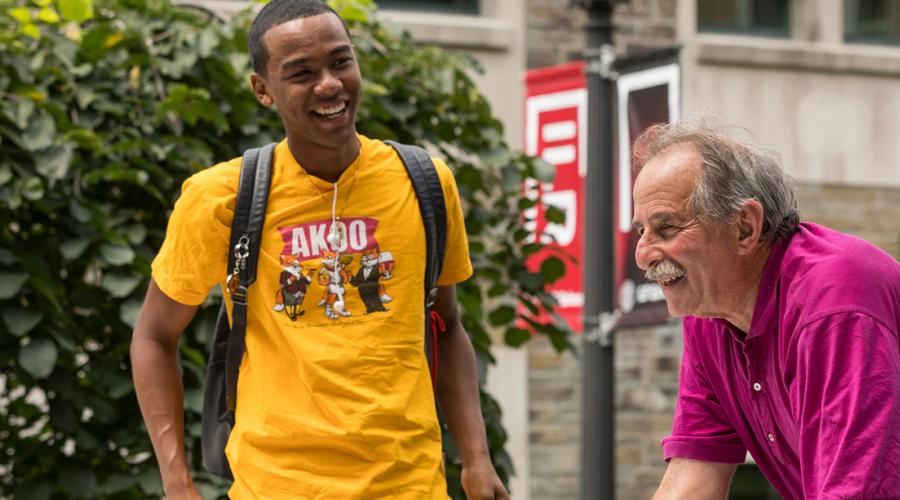
New Course Provokes Critical Thinking
Tied to ILR’s theme project on technology and the evolution of work, Lee Adler’s new undergraduate course, “The Uneven Balance of Technology and the Evolution of Work,” prompts undergraduates to explore the future.
During the seven-week course this fall, students examined whether technology perpetuates the separation of rich and poor, and evaluated universal basic income as a way to address societal needs.
After reading about the effects of technology, students debated the pros and cons of universal basic income, a program through which people receive regular sums of money through the government from various funding sources.
Taylar Clement ’19 took a pro stance, saying that universal basic income is not just about displacement of jobs due to technology; it also has ties to the welfare system. In addition, universal basic income, known as UBI, will place a human value on all individuals in society, even those of modest earnings such as caretakers, hairdressers, artists or homemakers. It would be a plan to care for future generations.
“With a UBI value system everyone participates in the economy,” Clement said.
In 2017, one percent of the population owned 38.6 percent of total wealth in the U.S., according to CNN Business.
Chris DeLara ’19 has a minor in business, and is chief operating officer of a student-led consulting group. He said, “As tech companies grow in wealth and individuals lose jobs there will be a need for redistribution of economic funds to make sure people don’t fall below the poverty line.”
“Basic human needs must be met and individuals must have access to quality of life. If automation causes people to lose jobs, there should be some kind of personal security. UBI would protect people,” DeLara said.
Eric Tractenberg ‘21 said that if technology corporations are eliminating jobs and realizing profits, they should pay taxes to support universal basic income.
This fall, Amazon raised its minimum wage to $15 an hour. One student said this was a political maneuver to stay in good standing in the public’s eye, as they are the fastest growing world’s online retail source.
U.S. Sen. Bernie Sanders of Vermont introduced the idea of “Stop Bezos Act,” which would tax Amazon to finance government payments to citizens in need.
Tractenberg highlighted the need to carefully watch corporations since a “public relations fund” may disguise low wages or other poorly suited worker controls.
Justin Valli ’20 said all current social programs would be affected by a UBI.
Another student questioned, “if a high school graduate was eligible for UBI, what incentive would they have to go to college? How would the system look after children? Would the plan cause an overpopulation if funding were based on number of children? What about the heroin addict? Someone said a UBI sliding scale would still allow for discrimination.
Students agreed that how the UBI was planned would be important. It could be funded, in part, by initial public offerings from companies, but then many companies would choose to be private.
Some students were concerned that smart cities could perpetuate the separation between the wealthy and poor. Charles Murray, author of “ The Bell Curve,” argued smart cities must support the overall good — for everyone.
Adler wrapped up the debate: “What’s certain is that there is a political vacuum around the changes of technology. Tech corporations are dominant at present, and there could be less control for people over their own lives if counterbalance policies aren’t implemented”
View other ILR “Technology and the Evolution of Work” theme projects.